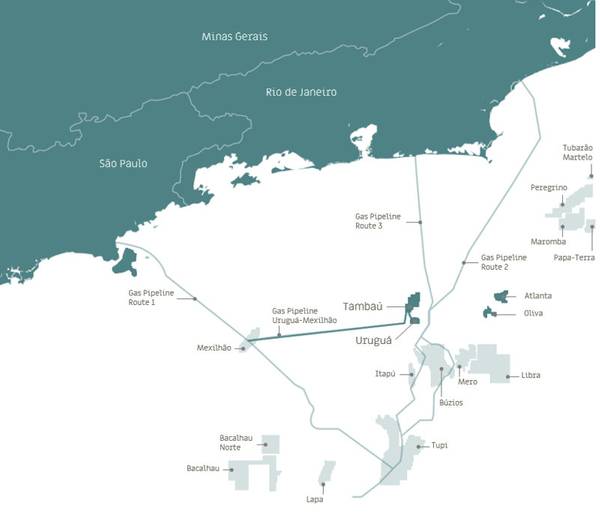
Brazil's state-run oil company Petrobras has signed contracts with Enauta for the sale of its entire stake in in the Uruguá and Tambaú fields, located in the Santos Basin.
The amount to be received by Petrobras from the operation is up to $35 million, the company said, adding that the transfer of the assets to a new operator represents an alternative to their decommissioning, with the prospect of extending their productive life.
The decision to divest the fields is the result of a process of active management of Petrobras' portfolio, through which the various assets are constantly evaluated in line with the company's most current strategic guidelines.
The Uruguá and Tambaú fields account for less than 1% of the production operated by Petrobras in the Santos Basin, presenting low strategic adherence to the company's portfolio and with the charter contract expected to end in January 2024, and consequently the unit will be decommissioned.
In view of the progress of the transaction, this contract will be extended and the new operator will evaluate the appropriate alternatives.
Petrobras' own employees involved in the Uruguá and Tambaú operations will be relocated to other company operations in the Santos Basin Business Unit.
The Uruguá and Tambaú fields belong to the BS-500 concession, which was acquired through the National Petroleum, Natural Gas and Biofuels Agency's (ANP) Zero Round.
The fields are located in the northern portion of the Santos Basin, between 140 and 160 km off the coast of the state of Rio de Janeiro, in water depths ranging from 1,000 to 1,500 meters.
The average production of the fields up to September 2023 was approximately 5.4 thousand bpd of oil and 353 thousand m3/day of gas. Petrobras holds a 100% stake in both fields, which produce through the FPSO Cidade de Santos, a unit chartered from MODEC.
Transaction closing is subject to conditions precedent, including the approval of Brazil’s National Agency of Petroleum, Natural Gas and Biofuels (ANP), Brazil’s Administrative Council for Economic Defense (CADE), Brazil’s Institute of Environment and Renewable Natural Resources, among other.